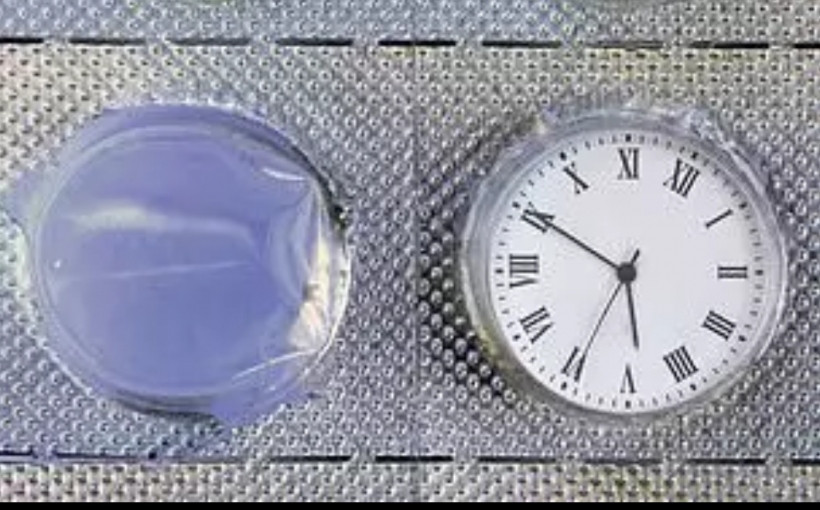Chronotherapy – how the body clock impacts drug efficiency is the key to getting the best out of pills, from heartburn medication, to chemotherapy, and even aspirin. A new Dutch study found that taking blood thinners such as aspirin at night, rather than the morning, could slash your chance of heart disease and stroke by half. ‘We have clocks in our bodies that control most physiological processes,’ says Dr Robert Dallmann, assistant professor in molecular clocks at Warwick University Medical School.
‘They determine when we are active, when we rest, and how we metabolise drugs. As a result, some drugs are best given at night and others during the day. ’So when’s the right time to take your pills?
HAVE BLOOD PRESSURE PILLS AT NIGHT Blood pressure medicines called ACE inhibitors, such as enalapril and lisinopril and others called beta blockers such as atenolol and bisoprolol.
How they work:
Both types of drug reduce the pressure of the flow of blood through the circulatory system by relaxing and widening blood vessels. Time of day to take them: Patients who take blood pressure tablets before bedtime see a more pronounced drop, compared to those who take them in the morning, according to studies. Dr Dallman says: ‘Blood pressure peaks first thing in the morning, to prepare the body for wakefulness. But if you take the drugs just before bed, they release into the blood stream overnight and prevent a morning spike.’
HEARTBURN DRUGS ARE BEST AT 6pm
The tablet:
Acid indigestion medications, called proton pump inhibitors, such as omeprazole, and H2 inhibitors, such as Zantac.How they work: The most common treatments for heartburn, or acid reflux, work by limiting the amount of acid produced by the stomach.Time of day to take them: Stomach acid is naturally higher between roughly 7pm and midnight, so taking the pills in the evening stops levels peaking to the point that they travel back towards the food pipe – causing the uncomfortable burning feeling. A recent study found three quarters of patients taking PPIs felt long-lasting relief after taking them around 6pm, compared to under half taking it before midday. A report by scientists at Berkeley University in California found a similar affect with the H2 blocker, cimetidine. And don’t wait until after dinner. As the problem is often worse while eating, the scientists found patients reported less discomfort if the drug was taken before the evening meal.
NO PARACETAMOL FOR BREAKFAST
The tablet:
Paracetamol, also called acetaminophen. How they work: The drug reduces the production of chemicals that make nerve endings sensitive. So although the cause of the pain remains, we may feel it less. Time of day to take them: Paracetamol is processed in the body by the liver. But the drug could be more toxic if taken in the morning. ‘Our levels of an enzyme called NAPQI in the liver are highest in the morning, and paracetamol increases this level,’ says Dr Dellman. ‘If this enzyme builds up, it can cause significant damage. ‘So it’s best to take it in the evening when levels are naturally low. ’This theory has been demonstrated in several mice studies by researchers at the University of Wisconsin. ‘If you give paracetamol to mice when they are most ”wakeful”, their liver levels of NAPQI are far higher over a 24 hour period, compared to when they are resting,’ says Dr Dallman. Paracetamol overdose is the cause of almost a third of liver transplants in the UK, according to The British Liver Trust.
STOP HEART ATTACKS WITH A BEDTIME PILL
The tablet: Blood thinners, or anticoagulants, such as warfarin.How they work: Taken to prevent heart attacks and stroke by thinning the blood to prevent potentially-fatal blood clots in the arteries that supply the heart and brain. Time of day to take them: Popping the pills just before bedtime can prevent the ‘perfect storm’ that causes most heart attacks and strokes to strike between 6am and midday. Dr Dallam says: ‘We produce most of our large blood cells, called platelets, during the night. ‘This makes our blood thick and sticky, so by the morning it’s at its stickiest, making it much more likely to clot. ‘As well as this, blood pressure peaks just before you get up, as does heart rate, preparing your body for wakefulness. So you have thicker blood that is passed through the arteries at greater force. ’Taking medications to prevent stroke and heart attacks at night prevents this chain reaction.
NIGHT ARTHRITIS PILLS FIGHT MORNING PAIN
The tablet: Anti-inflammatory drugs such as ibuprofen and naproxen, taken for pain caused by rheumatoid arthritis, and diseases thought to be caused by the immune system attacking the joints.How they work: One of the most common treatments for pain relief, this medication halts the production of enzymes that spark a cascade of inflammation in the joints, causing pain. Time of day to take them: Most rheumatoid arthritis sufferers find their pain and stiffness is far worse in the morning, making them reach for their pills which can take hours to yield relief.
But taking them before bed could be more effective. A review at the University of Genova concluded patients taking steadily-releasing anti-inflammatory drugs just before bedtime had less pain and stiffness in the morning than those who’d taken them when waking up. The over-reaction of the immune system that causes the disease, and release of inflammatory enzymes, accelerates at night and builds up until the early hours. Delivering drugs at night gradually releases the pills into the bloodstream, blocking the surge in inflammatory substances.
A series of studies in the 1980s found that some non-steroidal anti-inflammatory medication, such as ibuprofen or naproxen, can be most effective when taken roughly eight hours before the most acute pain.


